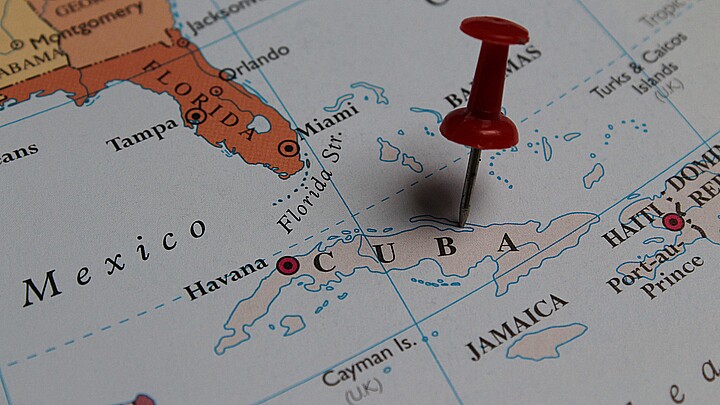Culture
New York Times slammed by Cuban activists and journalists after blaming U.S. embargo for mass exodus
"Cubans who claim that they are leaving the country for economic reasons do not dare to recognize what the real problem is, and they are the greatest example of the terror with which this country lives. Communism is the cause," said the poet and activist Ariel Maceo
December 13, 2022 2:02pm
Updated: December 15, 2022 8:34am
Several Cuban activists and journalists slammed a Tuesday New York Times article titled “Cuba is Depopulating: Largest Exodus Yet Threatens Country’s Future,” which attributes the mass exodus of Cubans on the U.S. embargo and pandemic instead of communist tyranny.
The report, which was published Monday and written by Frances Robles and Ed Agustin argues that, “the pandemic and tougher U.S. sanctions have decimated Cuba's economy, prompting the biggest migration since Fidel Castro rose to power.”
Among the sources consulted for the work is Ben Rhodes, a former Obama administration deputy national security adviser who declared that, "this is not rocket science: if you devastate a country 90 miles from your border with sanctions, people will arrive at your border in search of economic opportunity.”
Critics summarized that the substance of the article alleged that the majority of Cubans leave the island for economic reasons, not because of human rights violations and regime persecution. Instead, the authors referenced how the migration may provide economic relief for the regime.
The article has been criticized by several Cuban journalists and activists who defend human rights.
Poet and activist Ariel Maceo, a resident of Havana, who wrote on Twitter:
No, @nytimes, people are leaving Cuba for political reasons. The Cubans who claim that they are leaving the country for economic reasons do not dare to recognize what the real problem is, and they are the greatest example of the terror with which this country lives. Communism is the cause.”
— Ariel Maceo Tellez (@arielmaceo86) December 13, 2022
The Cuban journalist and researcher José Raúl Gallego also had an exchange on Twitter with one of the authors of the report, Ed Agustin, of whom he said: It fits perfectly with the predominant narrative in the foreign press accredited in Cuba, all controlled from the Ministry of Foreign Relations. Here there are no coincidences. I detail more, I detail less, but everyone is on the same path."
In what appeared to be a move designed to minimize criticism, Agustin promised that in the next few days another report of his would appear in The Guardian focused on the repression of independent journalists in the country.
Still, activist and historian Salomé García Bacallao similarly exposed Agustin as a foreign reporter living in Havana "charging hundreds for his journalistic work, while Cuban journalists can't even go shopping without being detained."
Yet another @nytimes article blaming the Cuban exodus on the embargo. Signed by Ed Augustin, a foreigner who lives splendidly in Cuba charging hundreds for his journalism work, WHILE CUBAN JOURNALISTS CAN'T EVEN GO OUT FOR GROCERIES WITHOUT BEING DETAINED. https://t.co/p7pi0jBrj2 pic.twitter.com/9ivkA1vjfu
— Salomé #MirenLasPrisionesDeCuba (@onceagainsalome) December 11, 2022
One Internet user, known as Geek Cubano also tweeted: “These are the headlines that the world sees about Cuba. People emigrate because of “the sanctions that decimated their economy,” not because of the PCC that has been around for 60 years destroying everything, nor for the lack of freedoms and EVERYTHING that is in the country. Disappointing.”
Cuban journalist Mónica Baró lamented: “This is the misleading journalism you get when you try to tell a reality without taking ITS journalists into account. Or at least, when you don't verify your perspective.”
Here we go, once again: this is the misleading journalism you get when you try to tell a reality without taking into account THEIR journalists. Or at least, when you don’t verify your perspective, @nytimesworld. pic.twitter.com/wxAa8x6Oie
— Mónica Baró Sánchez (@Mona_Cuba) December 12, 2022








